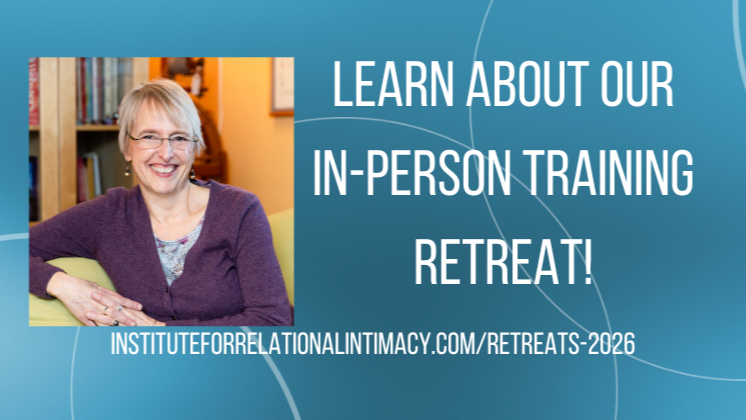Helping Your Clients Find The Courage To Make A Vulnerable Disclosure
Oct 02, 2018
Have you seen this scenario play out in your therapy room? One partner gathers their courage and shares something vulnerable, or reveals a secret, or a private desire. And then their partner feels hurt and freaks right out with a big emotional response.
The hurt partner’s feelings are usually perfectly understandable. But, at the same time, it is also understandable that their partner has not been eager to share deeply. It’s hard to come clean or get vulnerable when you have reason to expect an intense, dramatic reaction in response.
I think a really beautiful differentiated stance for any relationship is “I really want you to be honest with me, and I promise not to punish you for anything that you tell me.” That’s a big ask for a lot of people. It’s a courageous promise to make, and a difficult one to keep. But that’s the kind of courage that a differentiated relationship ultimately requires.
“Not punishing” means not blowing up, not sulking, not seeking revenge, and not holding a grudge. It doesn’t mean that you can’t have and acknowledge your feelings. But discussing your feelings and responses is an art form, especially when you don’t want to discourage your partner from honestly talking to you about hard things.
Some conflict-avoidant partners need a lot of encouragement to open up, and part of effective encouragement is getting skilled at managing reactive emotions in the face of distressing disclosures. One strategy might be to make a pact to thank one another for sharing, try to access curiosity, and hold the reactions and/or responses for a later time.
Or you could try saying something like “I’m having a bunch of feelings here, and I want you to know. I don’t need you to change anything, and I’m really glad you told me that, I just need a little time to think and adjust.” Compare these responses to “How dare you say that to me?” or “Don’t ever bring that up to me again.” One opens the door for further conversation and increased depth and connection, and the other slams the door shut and makes further sharing much less likely.
Taking the leap to the differentiated stance of welcoming disclosures, no matter how challenging, requires you to answer to this question: Do you want to know your partner? Really know them? Or are you ok with only seeing the sanitized, people-pleasing facade most of us present when we aren’t ready to really get vulnerable?
The facade might make for fewer uncomfortable feelings–at least for awhile, until something comes up that must be discussed. Many people can have a whole relationship without uncomfortable disclosures. But when the rubber meets the road, those relationships often end. Long term, healthy relationships, full of evolution, growth, and change, require deep trust in one another’s ability to share, and also to hold steady and get curious when the other shares.
This is the kind of challenge that calls on both partners to be their best selves: brave, patient, and compassionate.Think of it as the “growing pains” of a relationship moving towards differentiation. If a couple can get through it, they will emerge with a stronger, more resilient connection than ever before.






